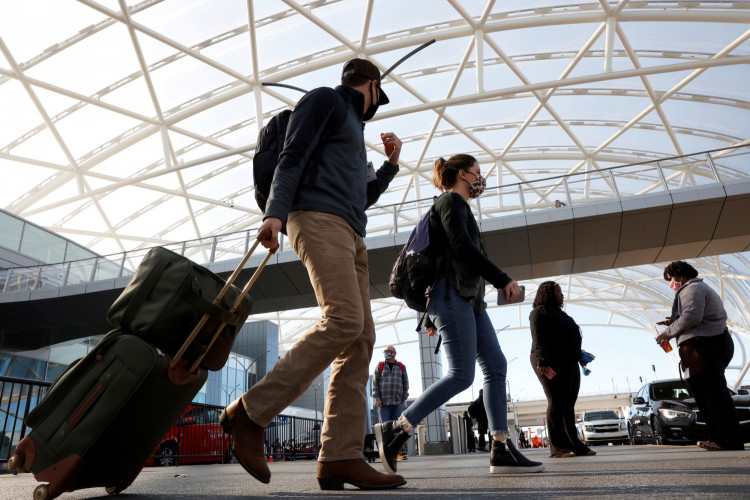All international arrivals to the U.S. will soon be required to show negative COVID-19 tests before being allowed entry, health officials say.
The Centers for Disease Control and Prevention said the new order would take effect Jan. 26.
In late December the government required arrivals from the UK to show negative tests after a new strain of the virus was detected there.
While earlier orders were similar to the new international-arrivals mandate, the latest will be applicable to American citizens, too.
Recovered people will be required to document their health history and proof of recovery.
The new virus variant has entered the U.S. and the order will do little to stop its spread but preflight testing might help reduce the new COVID-19 entrants, experts said.
Some airlines agree the order will help reduce transmissions. United Airlines spokeswoman Nicole Carriere said testing was "key to unlocking international borders and safely reopening global travel."
Other airlines have called for an international program for passenger testing, too.
Airline industry trade group Airlines for America recently asked vice president Mike Pence for rapid testing of all passengers traveling to the U.S.
Mandatory rapid testing for all arrivals will eliminate the need for border entry restrictions - saving airlines from further financial harm, Airlines for America said. However, the disease control agency hasn't updated entry restrictions as yet.
Meanwhile, the U.S. remains the hardest-hit country and on Tuesday, Texas joined California and New York on the list of states that had surpassed 30,000 deaths.
Earlier in the day, California confirmed 30,513 deaths. The state reported a record increase of 14,218 hospitalizations with California counties logging a cumulative 22,110 confirmed coronavirus cases Tuesday.
Johns Hopkins University data said the U.S. averaged more than 3,223 deaths linked to the disease over the past week.
There have been delays in vaccine distribution. So far, more than 9 million people have been vaccinated with a first dose but more than 27 million doses were distributed.
The U.S. has recorded more than 22 million confirmed cases and more than 380,000 deaths since the onset of the pandemic.






